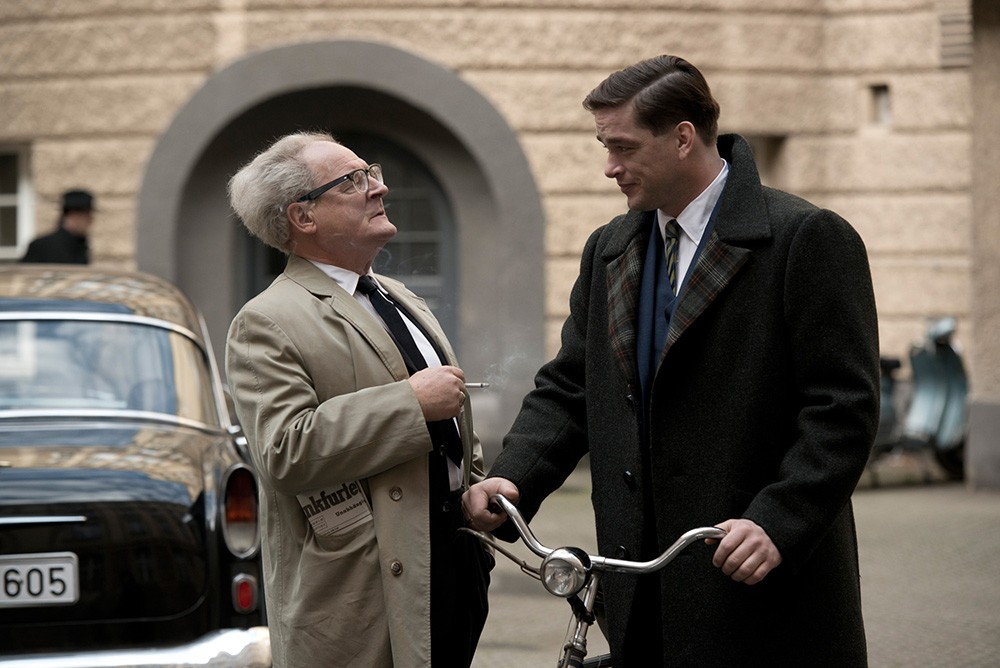The People vs. Fritz Bauer
Der Staat gegen Fritz Bauer (The People vs. Fritz Bauer) FL, 2015, 3 ¼ stars
Explaining justice
German film examines little-known Nazi hunter
From The Orlando Weekly, September 14, 2016
To appreciate history, one must not just expose truths but also uncover historical untruths. That’s especially important to remember when studying 1950s West Germany, which is often perceived as being enthusiastically receptive to Nazi hunters such as Simon Wiesenthal and Fritz Bauer, the latter of whom is the subject of a new German-language film by writer-director Lars Kraume. But instead of being vigorously supported in his attempt to bring Holocaust architect Adolf Eichmann to justice in the late 1950s, Bauer (the attorney general of the German state of Hesse) was blocked not just by those in his own government but by the likes of the CIA, which saw no Cold War benefit to helping with the Eichmann investigation.
The People vs. Fritz Bauer (Der Staat gegen Fritz Bauer, in German) tackles some of these topics, often in a slightly jumbled way, but is more intent on profiling Bauer himself, who is powerfully portrayed by Burghart Klaußner (The White Ribbon). We witness not just his professional struggles but his personal ones too.
“Your righteous anger: That’s good. It keeps you strong,” his boss tells him.
“No,” Bauer responds. “I’m angry and powerless, and it makes me old. … After ’45, I really thought we’d conquered evil. I thought we’d be able to build a new society: free, just, fraternal. But people aren’t interested in visions. They just want a nice little house and a nice little car.”
Despite his bitterness, Bauer soldiers on and sticks to his principles, which, for a gay Jew in West Germany in the 1950s, was extremely difficult. His only confidante and real friend is a fellow gay state attorney, Karl Angermann. It’s a nice touch to show Angermann’s support for Bauer and his passion for human rights – gay rights included – but there are two major problems with this approach: Ronald Zehrfeld, who portrays Angermann, is, at best, merely competent, and, even worse, his character is invented. Admittedly, this is narrative fiction and not a documentary, but because the film’s strength lies in telling a true story that needed to be told, the introduction of an entirely fictional element reeks of contrivance and saps the movie’s relevance.
The film is strongest when it isolates Klaußner, allowing him to bring to life the frustrations, passions and weaknesses of a man whose role in history has been largely ignored. And despite failing to fully attain the emotional power he had almost certainly wanted for his movie, Kraume does partially succeed in explaining the ethical uncertainties Bauer faces. No actual trial takes place in the oddly titled film, but, nevertheless, Bauer must confront the idea that he needs to break German law to help the German people make peace with their past.
“If we want to do something for our country,” Bauer tells Angermann, “we’ll have to betray it.”
That betrayal is now recognized as the highest form of patriotism, as it led to just punishment for a man whose only remorse lay in his disappointment that he was unable to kill all 10 million European Jews.
© 2016 Orlando Weekly / MeierMovies, LLC
